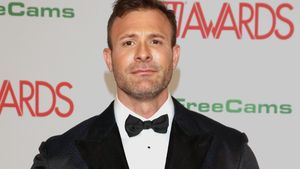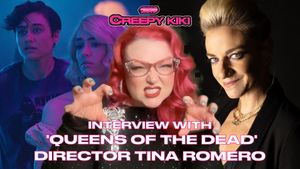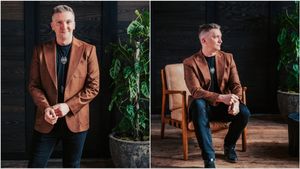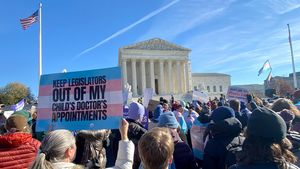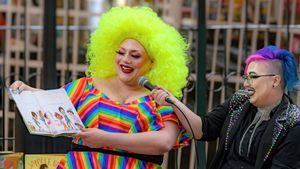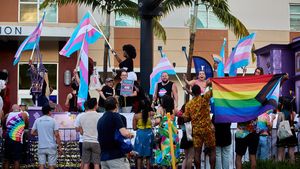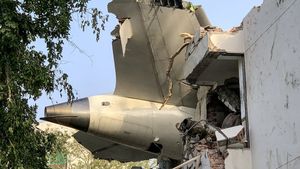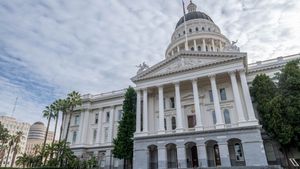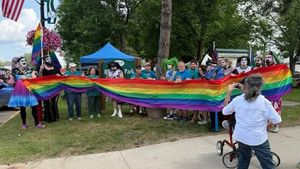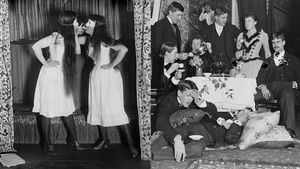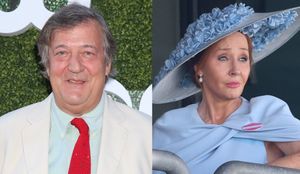Photo by Angela Rowlings Courtesy of Boston Herald.
Two new lawmen now patrol the streets of Beantown. They're young, they're fit and they're partners -- as in, they're a gay couple.
But please, they ask: don't call them "The Gay Cops."
"I sort of didn't want people to find out because I didn't want people to look at me differently," Boston Police officer Jimmy Moccia told the Boston Herald. "I wanted people to get to know us. We didn't want to be known as 'the gay cops.' We're cops who just happen to be gay. There's so many other things we are. Yeah, gay's on the list, but it doesn't define us."
Moccia and Shawn MacIver of Boston made history today as the first out gay couple to graduate from the Boston Police Academy, according to the Herald.
And they're no slouches: both men scored 100 on their civil service tests, the Herald reported.
"I think it's important to note that throughout the entire academy experience we were never afraid to be ourselves," said Moccia.
The men have been together for five years, and Monday, in a steady rain, they completed the traditional eight-mile run from the police academy in Hyde Park to Schroeder Plaza, in step with their recruit class, labeled 54-14.
Moccia comes from a family of cops: his father and brother are also on the force. "I'm not going to lie. I was pretty nervous on the first day back in December," he said. "It's not anything we were hiding, but we wanted to prove ourselves as classmates and friends. And over the course of our training, we were welcomed by everyone. Our peers, our classmates, can say we were down in the mud, we were running, we were doing push-ups, we were going through the same training. The academy kicked our asses ... but we're still standing at the end of it."
MacIver believes he and Moccia may be the first openly gay couple in any major police department in the U.S., according to his own online research. The Boston Police Department was touting the history-making couple on its Facebook page Monday.
MacIver didn't think this day was possible. After a short stint on a smaller police force, MacIver told the Herald he was convinced that his dream of serving openly, with the respect of his colleagues, would never come true.
But when he moved to Boston five years ago and met Tim Hancock, a member of the BPD's SWAT team, his thinking changed. MacIver explained that shift to the Herald:
"Tim came out 20 years ago this month after he graduated from the police academy. He's a former Marine, a legend in the department, not to mention an inspiration and motivator who told me I could pick up my dream and follow it here in Boston.
"I'll admit that I was reluctant at first about sitting down for this interview," he added. "But Tim reminded me that it was people like him and Boston officer Javier Pagan who opened the door for guys like Jimmy and myself, and we were only following his lead.
"'The story is not just about you,' he told me. 'It's about all the other people who might be struggling or having concerns about whether they can do the job, or might want to do the job, but don't know any other gay police officers.'"
In a fateful case of foreshadowing, Jimmy Moccia's father was among the first officers to extend a welcoming hand to Tim Hancock 20 years ago, when both men were stationed at Area D-4 in the South End.
MacIver and Moccia met while working security at a gay club in the South End. Jimmy worked the door at Club Cafe and Shawn managed security.
"We worked well as a team," MacIver said. "We learned a lot about the [gay] community, the needs of the community and some of their concerns."
"You kind of see the different aspects of the gay community," said Moccia. And that's made his a better, more empathetic cop, he added:
"And a lot of people that we worked with, a lot of our co-workers, were afraid of cops, and didn't trust cops, and they had this idea that cops didn't like them because they were a certain way.
"On the civil service exam there is no box you can check for being 'gay,' but the truth is we are a minority. We are a minority in the country as well as the department. But when you talk about community policing, I think it really provides us with a deeper empathy. We understand what it is like to exist in the shadows."

























